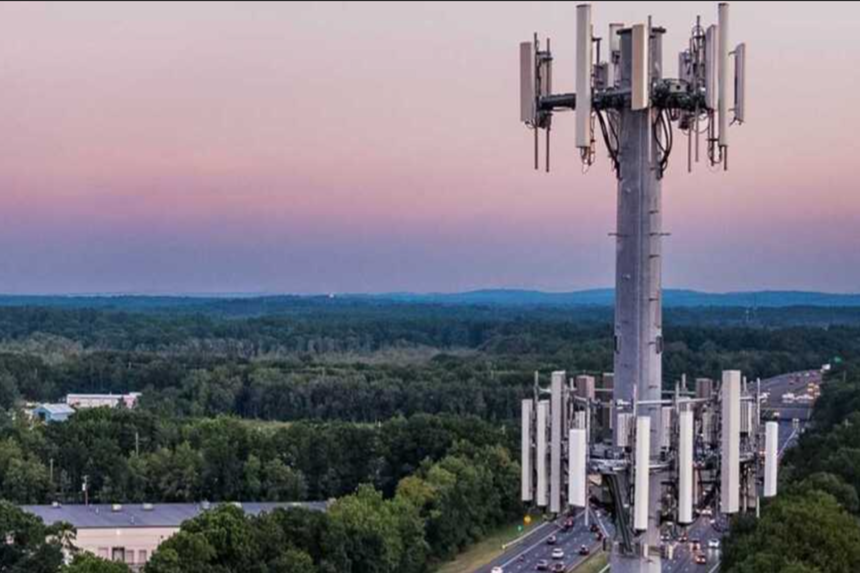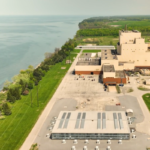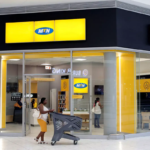Vertical Bridge, a key player in the communications infrastructure space, has successfully completed its $3.3 billion acquisition of over 6,300 wireless towers from Verizon. This monumental transaction positions Vertical Bridge as one of the largest tower operators in the United States. The deal officially closed at the end of December 2024, marking a transformative milestone in the company’s growth and its ongoing partnership with Verizon.
What Does the Deal Involve?
As part of this acquisition, Vertical Bridge will lease, operate, and manage more than 6,300 wireless communication towers located across all 50 states. These towers were previously owned by subsidiaries of Verizon, with the agreement structured as a prepaid lease. Verizon made an upfront payment of approximately $2.8 billion in cash as part of the deal.
This acquisition is significant not only for the scale of the towers involved but also for the unique positioning of these assets. Many of the towers are in hard-to-serve or less accessible locations, providing Vertical Bridge with valuable opportunities to expand its infrastructure portfolio.
Leaseback Arrangement and Future Flexibility
Under the terms of the agreement, Verizon will continue to lease back capacity on the towers from Vertical Bridge, becoming the anchor tenant. This leaseback agreement is set for 10 years but includes options that could extend the lease term for up to 50 years, offering long-term stability for both companies. Additionally, Verizon retains the right to access more space on the towers for future use, though this is subject to certain restrictions.
Vertical Bridge’s Growth and Strategic Positioning
This acquisition significantly expands Vertical Bridge’s footprint in the US, bringing its total tower ownership and master lease holdings to more than 11,000 towers across the country. With this acquisition, the company strengthens its position as a dominant player in the tower operations market, one of the largest sectors within the broader communications infrastructure industry.
Ron Bizick, the President and CEO of Vertical Bridge, expressed the strategic importance of this deal, noting that it solidifies the company’s role as a preferred partner for US communications infrastructure. Bizick emphasized the potential for expanding vertical real estate solutions to customers, particularly given the unique locations of many of these towers.
The Significance of Verizon’s Asset Sales
Verizon has previously sold off tower assets in the past, including a notable sale in 2015 when it offloaded the rights to lease and operate about 11,000 towers to American Tower Corp. for a hefty $5 billion. The decision to divest tower assets in both 2015 and now reflects Verizon’s strategy to raise capital for spectrum acquisitions and reduce debt, enabling the company to focus its resources on other strategic priorities in the telecommunications space.
The Role of Vertical Bridge and Digital Bridge
Vertical Bridge is a subsidiary of Digital Bridge, an investment firm specializing in digital infrastructure. This acquisition is consistent with Digital Bridge’s long-term strategy of investing in and growing digital infrastructure assets across the US. Vertical Bridge’s expansion into tower management strengthens its competitive position in the digital infrastructure market, especially given the growing demand for reliable wireless communication networks and 5G deployment.
With over 11,000 towers in its portfolio, Vertical Bridge is now one of the largest and most influential tower operators in the US, making it a key player in the rapidly evolving communications infrastructure space.
Frequently Asked Questions (FAQ)
1. What is the value of the deal Vertical Bridge made with Verizon?
The deal between Vertical Bridge and Verizon is valued at $3.3 billion. This includes a prepaid lease payment of approximately $2.8 billion in cash and an agreement for Verizon to lease back capacity on the towers for 10 years.
2. How many towers are included in the Vertical Bridge acquisition?
Vertical Bridge has acquired over 6,300 wireless communication towers across all 50 states. This acquisition adds to Vertical Bridge’s already significant tower portfolio, bringing its total holdings to over 11,000 towers.
3. What is the leaseback agreement between Vertical Bridge and Verizon?
Verizon has agreed to lease back capacity on the acquired towers from Vertical Bridge as the anchor tenant. The initial lease term is 10 years, with options to extend the lease for up to 50 years.
4. Why did Verizon sell these towers?
Verizon’s decision to sell these towers is part of its ongoing strategy to divest non-core assets. The proceeds from the sale will be used for spectrum acquisitions and to reduce debt, enabling Verizon to refocus its resources on other strategic investments.
5. How does this deal affect Vertical Bridge’s position in the market?
The acquisition significantly enhances Vertical Bridge’s market position, making it one of the largest tower operators in the US. The addition of over 6,000 towers strengthens Vertical Bridge’s ability to meet the growing demand for wireless communication infrastructure, particularly as 5G networks continue to expand.



















